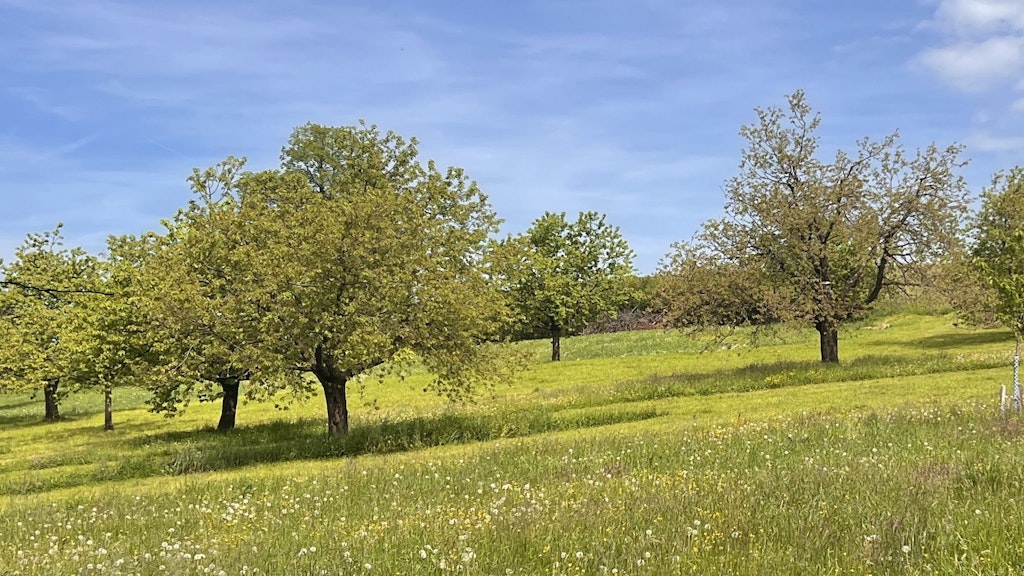Das BLW handelt jetzt für morgen
Wir setzen uns dafür ein, dass Bäuerinnen und Bauern nachhaltig und auf den Markt ausgerichtet produzieren. Eine multifunktionale, wertschöpfende Land- und Ernährungswirtschaft ist wichtig. Im Fokus des BLW steht zudem die Ernährungssicherheit für die Schweizer Bevölkerung.

News
Unsere Schwerpunkte

Agrarpolitik 2030+
Die Erarbeitung der nächsten Agrarpolitik wurde aufgegleist. Basierend auf einem Auftrag des Parlaments schafft das BLW die Grundlagen für die nächste Agrarpolitik bis 2030 (AP30+).

Direktzahlungen
Der Bund fördert die gemeinwirtschaftlichen Leistungen der Landwirtschaft mit Direktzahlungen.

Einfuhr
Für die Einfuhr von Agrarprodukten sind teilweise Bewilligungen erforderlich und Zollvorschriften einzuhalten. Anhand der Zolltarifnummer kann die Bewilligungsstelle eruiert und mögliche Zollkontingente für die Einfuhr eingesehen werden.

Nachhaltigkeit
Nachhaltigkeit bedeutet, die Bedürfnisse der Gegenwart zu befriedigen, ohne die Möglichkeiten zukünftiger Generationen einzuschränken. Dabei werden ökologische, soziale und ökonomische Ziele gleichermassen verfolgt.

Biodiversitätsbeiträge
Der Bund zahlt Beiträge für eine angepasste Nutzung der Flächen und fördert und erhält damit einheimische Arten und ihre Lebensräume in der Landwirtschaft.

Tierische Produkte
Tierische Produkte sind für die Schweizer Landwirtschaft sehr wichtig, sie generieren mehr als die Hälfte des landwirtschaftlichen Produktionswerts.
Medienmitteilungen
Bundesrat verabschiedet Bericht zum Gewässerschutzprogramm in der Landwirtschaft
Der Bundesrat hat am 5. Dezember 2025 einen Bericht zur Erhöhung der Wirksamkeit des Gewässerschutzprogramms in der Landwirtschaft verabschiedet. Darin legt er den Beitrag des Gewässerschutzprogramms an der Sanierung belasteter Gewässer dar und zeigt Möglichkeiten auf, wie das Programm vereinfacht werden könnte.
Bund investiert in 33 Ideen für die Räume von morgen
Mit den Modellvorhaben Nachhaltige Raumentwicklung fördert der Bund lokale, regionale und kantonale Akteurinnen und Akteure, die versuchen, mit neuen Methoden aktuelle Probleme zu lösen. Für die nächsten vier Jahre hat der Bund für 33 Projekte insgesamt knapp 4,3 Millionen Franken gesprochen.
Die Schweiz fordert dazu auf, das Saatgut für die Landwirtschaft zu diversifizieren
Vom 24. bis 29. November 2025 wird die Schweiz an der 11. Tagung des Lenkungsorgans des Internationalen Vertrags über pflanzengenetische Ressourcen für Ernährung und Landwirtschaft in Lima, Peru, teilnehmen. Sie wird dort den wichtigen Stellenwert der Erhaltung und nachhaltigen Nutzung pflanzengenetischer Ressourcen für Ernährung und Landwirtschaft unterstreichen. Die Schweizer Delegation wird von Christian Hofer, dem Direktor des Bundesamts für Landwirtschaft (BLW), geleitet, dem für diesen Anlass der Titel eines Staatssekretärs verliehen wird.
Kontakt und Standort
Schwarzenburgstrasse 165
Schweiz - 3003 Bern

